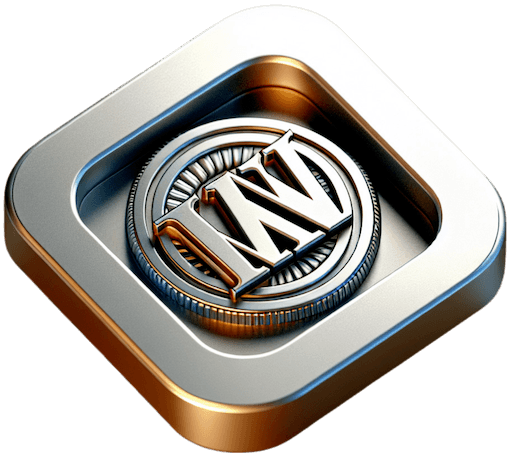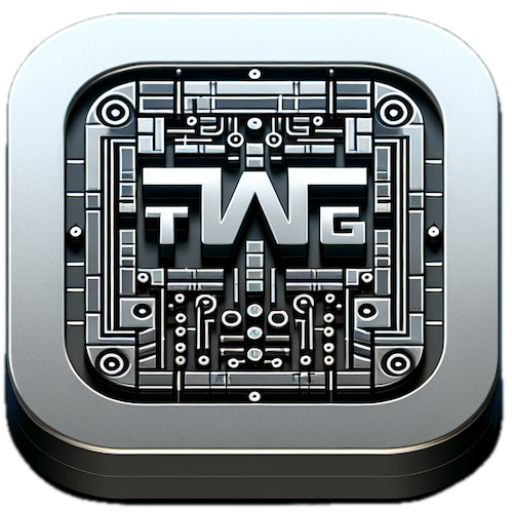Emerging Technologies Review: Focus On Innovations Like AI, Quantum Computing, And Blockchain In 2025.

Technology in 2025 looks much like a fast-evolving landscape,
Where previously unimaginable inventions are becoming part of everyday life. We’re at a pivotal moment where fields like AI, quantum computing, and blockchain aren’t just buzzwords anymore. Each of these domains is evolving in a fascinating way, reshaping how we think about technology’s potential impact.
AI’s remarkable growth over the last few years has been nothing short of phenomenal, and its integration into various industries is still gaining pace. From healthcare to finance, AI solutions have started addressing complex problems with efficiency and scale, promising to streamline operations and provide valuable insights. However, it’s becoming increasingly critical to address ethical concerns, ensuring AI develops in a way that benefits society as a whole.
Quantum computing, on the other hand, is slowly but surely creeping out of the purely theoretical domain into real-world applications. Its capability to process information at incredible speeds could revolutionize fields like cryptography and material science. The technology’s potential leads to new opportunities, but also poses challenges—getting it ready for commercial use requires further breakthroughs and practical solutions to existing limitations.
Blockchain technology continues to expand beyond its initial cryptocurrency roots. We’ve seen it being adopted in various fields for enhanced security, transparency, and decentralization processes. Blockchain has begun stepping into industries like supply chain management, healthcare, and more, driving a transformation in how data is managed and shared.

Back in the day, the pandemic pushed us towards more rapid tech adoption out of necessity, but now this momentum carries on as a permanent shift. Businesses recognized the importance of staying agile and technologically adept, which has, in turn, accelerated various tech developments. With all this progress, 2025 brings massive opportunities for innovation, but it also demands a thoughtful approach towards making technology serve humanity’s best interests.
Artificial Intelligence: Revolutionizing Industries and Society
Artificial Intelligence (AI) isn’t just a tool for the future—it’s here now, changing the way we work, interact, and understand the world. Industries across the board are adopting AI technologies to improve efficiency and innovate in ways we could barely imagine a few years back.
In healthcare, AI is being used to analyze complex medical data, predict patient outcomes, and even assist doctors in diagnosing diseases with higher accuracy. A growing number of hospitals turn to AI to manage patient records, streamline operations, and enhance patient care, pushing the boundaries of traditional healthcare solutions.
The impact of AI stretches into the realm of business as well. Companies use AI to analyze large datasets, providing insights that empower strategic decisions. AI-driven algorithms are personalizing consumer experiences, predicting market trends, and optimizing logistics. Businesses adopting these AI advancements find themselves better equipped to compete in a fast-paced market landscape.
As AI’s footprint expands, so does the debate over its ethical deployment. Concerns about privacy, bias, and decision-making autonomy are very real. It’s becoming increasingly crucial for developers, companies, and policymakers to work together to ensure AI solutions are transparent, fair, and aimed at enriching society, not eroding trust.
With AI automating routine tasks, there’s a significant question around its effect on the job market. While some jobs are at risk of automation, new roles are emerging that require skills in AI monitoring and program management. Upskilling and reskilling the workforce will be a vital strategy—organizations should invest in training programs to prepare employees for this shift.
In addressing these shifts, technology and society must move hand in hand, ensuring AI enriches life rather than complicates it further. The balanced integration of AI into various sectors isn’t just beneficial but essential, setting a foundation for a sustainable technological future.
Quantum Computing: The Next Frontier
Quantum computing stands on the verge of unlocking possibilities that traditional computing could never achieve. It’s not just about doing things faster; it’s about solving complex problems that’d take classical computers centuries to compute. This kind of potential is drawing attention from tech enthusiasts, researchers, and industries alike.
In the past few years, quantum computing has made strides that were once considered the stuff of science fiction. Major tech players and startups are investing heavily, pushing the boundaries with quantum processors that have shown promising results in early experiments. These breakthroughs suggest a future where quantum computers could reshape entire industries.
For cryptography, quantum computing represents both a threat and an opportunity. Current encryption methods used for digital security could be cracked in seconds by a powerful quantum computer. However, this threat is also fueling research into quantum-safe cryptography, which could transform how we secure digital information.
The realm of material science is also set to benefit immensely from quantum computing. The nature of quantum calculations allows for the simulation of atomic interactions that are too complex for classical computers to handle. This could lead to the discovery of new materials, with applications in everything from aerospace to energy storage.
Despite its potential, quantum computing faces significant hurdles. The technology requires extremely stable environments to operate, and achieving practical, fault-tolerant quantum systems remains a challenge. However, advancements continue, and the hope is that as these technologies mature, they’ll move from the laboratory into real-world applications.
The road ahead for quantum computing is as promising as it is complex. Researchers and developers need to navigate technical challenges while exploring ethical and social implications, ensuring that the pursuit of power doesn’t outpace wisdom and societal benefit.
Blockchain Beyond Cryptocurrency
Blockchain technology has moved well beyond its association with just digital currencies. The transparency and security it offers are appealing across a wide array of industries, revolutionizing how transactions and data management are approached.
Many sectors, such as supply chain management, have begun using blockchain to enhance transparency. With blockchain, it’s possible to track every step a product takes from manufacturer to consumer, providing verifiable proof of provenance and adding a layer of trust to supply chains. This level of transparency isn’t just a bonus—it’s becoming a requirement for businesses wanting to build consumer trust.
In finance, blockchain is shaking things up through Decentralized Finance (DeFi), which seeks to recreate traditional financial systems using blockchain technology. DeFi platforms offer services like lending, borrowing, and trading without intermediaries. This capability reduces costs and increases access to financial services for a larger audience, though it also raises questions about regulation and security that need careful consideration.
Healthcare is another area ripe for blockchain integration. Securely sharing patient data among trusted entities without compromising privacy is a challenge blockchain is well-suited to tackle. This technology can foster better collaboration between providers, leading to improved patient outcomes and streamlined operations.
Overall, embracing blockchain means embracing a fundamental shift in how we think about data ownership and security. The potential to empower users by decentralizing control over data is enormous, but it also requires trustworthy implementations and adherence to ethical standards.
As blockchain continues to cement its place across sectors, professionals in tech and business should stay informed and ready to adapt. They should understand blockchain’s capabilities and limitations, ensuring practical applications that truly benefit users.
Recent Posts
- Consumer Tech Trends: Investigate Consumer Preferences And Trends In Technology Usage And Adoption In 2025.It’s 2025, and the digital revolution is reshaping how we live and work. Augmented and virtual reality have broken out of niche markets and into everyday applications.… Read more: Consumer Tech Trends: Investigate Consumer Preferences And Trends In Technology Usage And Adoption In 2025.
- 9. Health Tech Innovations: Developing Wearables, Telemedicine Platforms, And Health Management Apps For Improved Healthcare.Health technology, or health tech, is reshaping the healthcare landscape by blending cutting-edge technology with health services to enhance patient care and streamline healthcare operations. At the… Read more: 9. Health Tech Innovations: Developing Wearables, Telemedicine Platforms, And Health Management Apps For Improved Healthcare.
- 10. Smart Cities Solutions: Creating Technologies Aimed At Improving Urban Living Through Better Infrastructure, Energy Management, And Mobility.Urban areas are expanding right before our eyes, and the need for smarter infrastructure is more pressing than ever. As populations grow, cities face challenges like congestion,… Read more: 10. Smart Cities Solutions: Creating Technologies Aimed At Improving Urban Living Through Better Infrastructure, Energy Management, And Mobility.
- Tech Education And Skills Development: Create Resources For Learning About Emerging Technologies And Upskilling For Future Careers.The global skills gap is widening at a worrying pace, as technology steers the future of work into uncharted territories. Folks can no longer rely solely on… Read more: Tech Education And Skills Development: Create Resources For Learning About Emerging Technologies And Upskilling For Future Careers.
- Cybersecurity Trends: Analyze And Report On Evolving Cybersecurity Threats And Solutions In 2025.Cybersecurity threats have gone from pesky nuisances to serious challenges over the years. It’s wild seeing how methods of attack have become more creative and damaging. In… Read more: Cybersecurity Trends: Analyze And Report On Evolving Cybersecurity Threats And Solutions In 2025.
- Virtual Reality And Augmented Reality Insights: Explore Advancements In VR And AR Technologies And Their Applications.Virtual Reality has been around longer than many folks might think. It all started way back in the 1950s with a contraption known as the Sensorama. This… Read more: Virtual Reality And Augmented Reality Insights: Explore Advancements In VR And AR Technologies And Their Applications.
Top websites that may interest you :
Revolutionary Hubs
The Ultimate Guide to Affiliate Marketing
Wealthy nexus marketing
Empower Entrepreneurs
Fulfilling lifestyle Better life comfort
Improve your daily for a better life comfort.


















2 COMMENTS